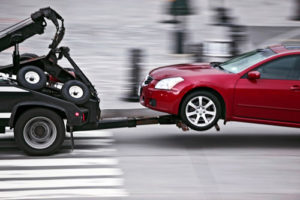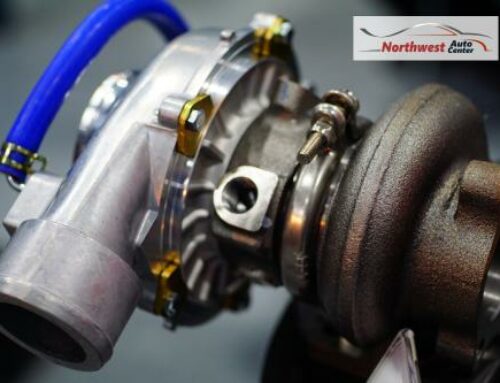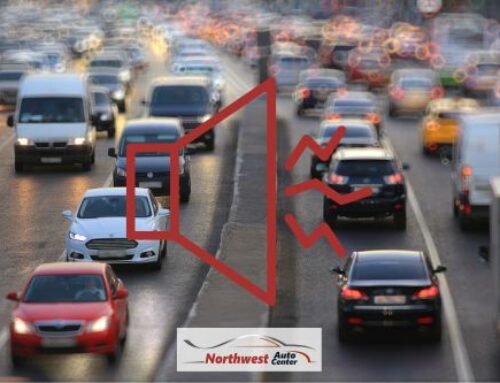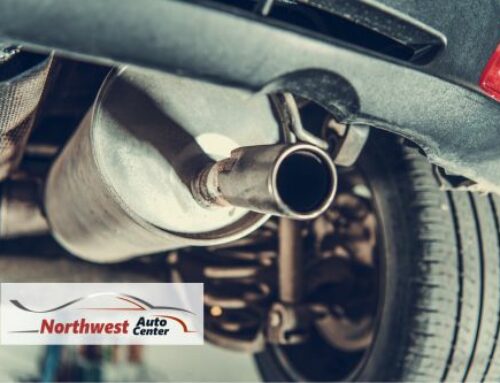You can have the world’s most powerful engine, but without a working transmission, you and your car would not be moving anytime soon.
A part of your vehicle’s powertrain the transmission moves the power from the engine to your wheels. With all that responsibility, it’s no wonder folks get nervous when they suspect car transmission problems.
What Does a Car Transmission Do?
Your car’s transmission has a lot going on. Using different mechanical components, it transfers the power created in your engine to your drive axle (or axles depending on your vehicle) to propel you forward or backward.
Controlling Power and Speed
Gear ratios determined automatically or manually dictate the amount of power transferred as well as the speed.
Lower gears transfer more power, but less speed. With higher gears, less energy is transferred as the vehicle is already traveling at a higher rate. The higher the gear, the lower the gear ratio.
Automatic Versus Manual Transmission
 The difference in automatic and manual transmissions comes down to how that gear ratio is dictated — either automatically through the transmission or manually by the driver.
The difference in automatic and manual transmissions comes down to how that gear ratio is dictated — either automatically through the transmission or manually by the driver.
With manual transmissions, it’s mainly a large, glorified bicycle gear shift. You shift lower to get up the hills and shift higher while coasting. Engaging the clutch disengages the engine and transmission, which allows a driver to choose the gear and therefore power manually. Once the clutch releases, the transmission diverts the requested amount of energy.
With an automatic transmission, all this is done without the involvement of the driver. When the vehicle detects it needs more power (like when going up a hill or accelerating quickly), it shifts automatically to a lower gear. When the car is up to speed, it moves to a higher gear.
Common Car Transmission Problems You Shouldn’t Ignore
 Transmission Slipping
Transmission Slipping
Once in gear, your car should stay in gear. With a manual transmission, a slip in gears is evident because you never made that gear shift.
With an automatic transmission, it may be harder to notice, but it remains fairly obvious as well. If you’re driving and your car shifts gears unexpectedly and your car either revs too high or starts to lug than something is up.
Not only inconvenient, slipping out of gears requires immediate attention as it’s a huge safety issue. Say you need to accelerate quickly out of harm’s way. If your gear slips, you aren’t going to move in time.
Rough or Abnormal Shifts
If your car refuses to shift, takes longer than usual, lurches or makes clunking noises during shifting (whether automatic or manual), it’s time to visit your local mechanic.
The reasons behind rough, abnormal or delayed shifts range from a worn out clutch to worn parts in the transmission. Eventually, the grinding and roughness will cause excessive transmission wear, permanently damaging the critical system (and leading to costly replacements instead of repairs).
Leaking Fluids
Your car’s transmission fluids keep the well-oiled machine running. Without it, your transmission becomes an un-oiled mess.
If you see signs of leaking or continually have to top-off the transmission fluid, it’s best you go in for a check-up.
If you start smelling a burning scent, it’s time to take your car in as well. One likely culprit of the putrid stench would be a build-up of debris and sludge from not changing the transmission fluid frequently enough.
Anything Abnormal
Experiencing something abnormal when shifting, accelerating or even idling? Take your car in.
Like the rest of your car and engine, there is a ton of power being created, converted and transferred within a minimal amount of space. With that comes a high potential for things to become slightly off. Leave that alone long enough and slightly turns into BIG problems — transmission abnormalities included.
Your car transmission is what gets you going in the mornings, taking power from the engine and converting into motion and torque. Think something is off with your car’s transmission? Visit Northwest Auto Center in Houston, TX — we’ll get you cranking again.







Leave A Comment
You must be logged in to post a comment.